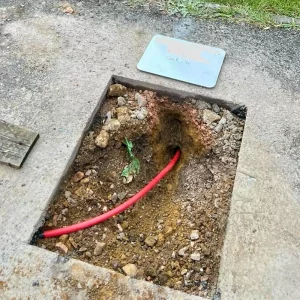Sponsored Links
New ADSL Migration Rules Proving Successful
Posted: 03rd Mar, 2007 By: MarkJ
Initial findings from a group of BBC monitored broadband consumers appear to suggest that Ofcoms improved migration code (MAC) rules have had an impact. The mandatory rules were designed to make the process quicker (five working days), cheaper (free) and generally more flexible:
The BBC News Online item goes on to list some more examples and reminds people suffering migration problems to contact Ofcom. Typically the regulator will want to know the ISP's name, date of MAC request, their response and details of any related conversations with the provider.
We too have seen far fewer complaints about problematic broadband migration, although they do still pop up. Fully unbundled providers have also been causing some gripes. Still, it's fair to say that overall complaints including problems with broadband migrations are significantly down.
Some had begun the process before 14 February but others only started after the new rules came into force. Now almost all those who agreed to take part in our consumer test have moved supplier.
The hardest part for Tom Szirtes was getting a MAC from former supplier Pipex who prior to 14 February had been reluctant to hand one over. However, two days after the new rules came into force he had his MAC and since then has moved to Be who took four days to turn it on.
Neil Smith had a potentially tricky migration as he moved from one unbundled supplier (UK Online) to another (Sky). Prior to 14 February he had been told he would have to 20 days between one service ending and the new one starting. This waiting period would ensure "the line was clear" and he could be successfully moved across. In the event the move took about 12 days.
The hardest part for Tom Szirtes was getting a MAC from former supplier Pipex who prior to 14 February had been reluctant to hand one over. However, two days after the new rules came into force he had his MAC and since then has moved to Be who took four days to turn it on.
Neil Smith had a potentially tricky migration as he moved from one unbundled supplier (UK Online) to another (Sky). Prior to 14 February he had been told he would have to 20 days between one service ending and the new one starting. This waiting period would ensure "the line was clear" and he could be successfully moved across. In the event the move took about 12 days.
The BBC News Online item goes on to list some more examples and reminds people suffering migration problems to contact Ofcom. Typically the regulator will want to know the ISP's name, date of MAC request, their response and details of any related conversations with the provider.
We too have seen far fewer complaints about problematic broadband migration, although they do still pop up. Fully unbundled providers have also been causing some gripes. Still, it's fair to say that overall complaints including problems with broadband migrations are significantly down.
Search ISP News
Search ISP Listings
Search ISP Reviews
Latest UK ISP News








Cheap BIG ISPs for 100Mbps+
150,000+ Customers | View More ISPs
Cheapest ISPs for 100Mbps+
Modest Availability | View More ISPs
Latest UK ISP News
Helpful ISP Guides and Tips
Sponsored Links
The Top 15 Category Tags
- FTTP (6717)
- BT (3862)
- Politics (3033)
- Business (2733)
- Openreach (2628)
- Building Digital UK (2486)
- Mobile Broadband (2434)
- FTTC (2132)
- Statistics (2100)
- 4G (2062)
- Virgin Media (1997)
- Ofcom Regulation (1761)
- 5G (1692)
- Fibre Optic (1586)
- Wireless Internet (1581)
Sponsored
Copyright © 1999 to Present - ISPreview.co.uk - All Rights Reserved - Terms , Privacy and Cookie Policy , Links , Website Rules































